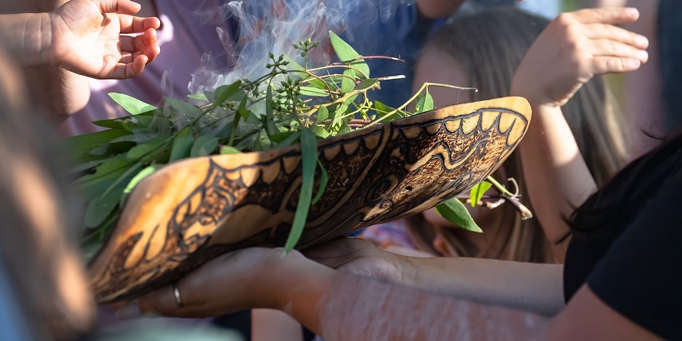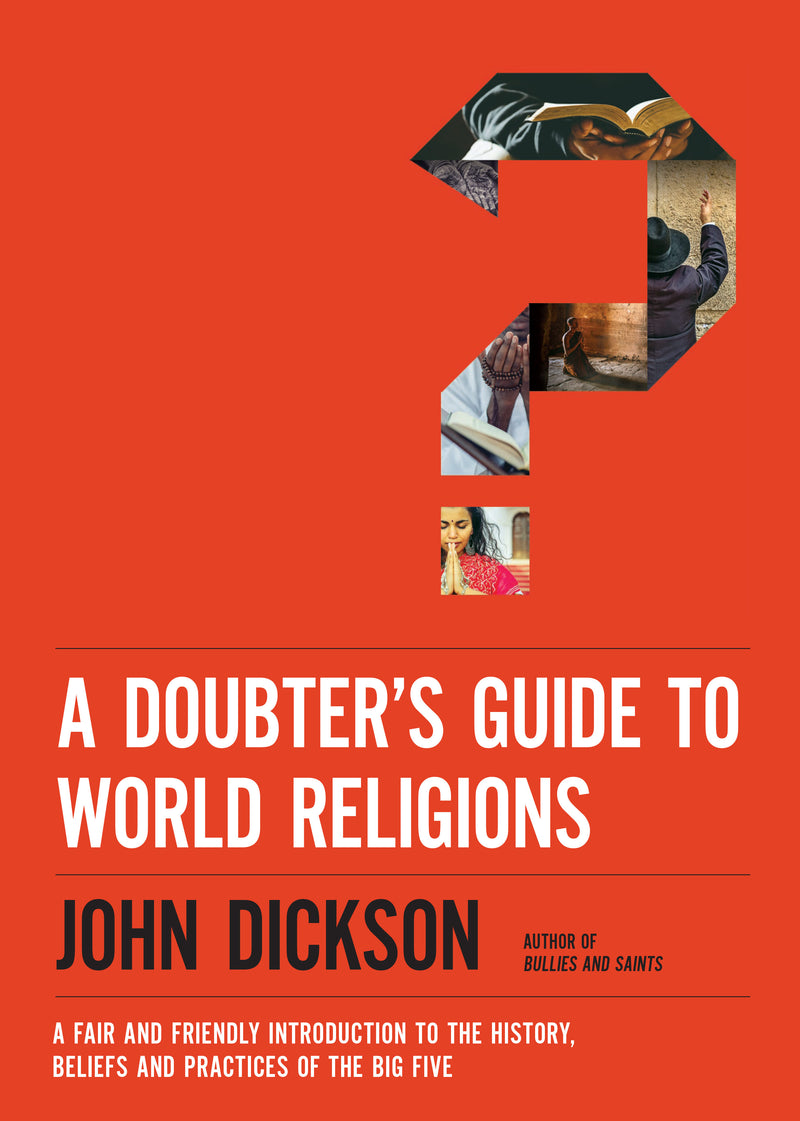
Should I let my children attend an Aboriginal smoking ceremony?
A conversation about observation versus participation.
This article is based on a recent conversation on the SMBC graduates’ Facebook group. Many thanks to the people who were willing to share their wisdom.
Ben Hunter wrote: Smoking ceremonies tend to be religious in nature, often invoking spirits of ancestors or warding off evil. I believe that the practice varies—some Aboriginal Christians don’t engage in smoking ceremonies, but others are happy to adapt the traditional cultural practice.
You can find out more about the various views that Aboriginal Christians have towards smoking ceremonies in this article from Eternity News.
When it comes to attending one where you don’t know what kind of spiritual perspective will be in play, I tend to apply the same policy our Anglican school applies to learning about other religions, where we delineate between observation and participation. If we have an excursion to a synagogue or a mosque, we’re there to learn through observation and conversation. Participation is another form of learning that we don’t require of our students.
If the school were a Christian school, I think it would be entirely appropriate for you to ask questions about the purpose of the smoking ceremony.
Since it’s a public school, I would seek to find a respectful way to recognise the history of our nation and honour its first inhabitants, even if the school may be unaware that the spiritual beliefs and practices involved may conflict with those of some members of the school community. Maybe you could see this as a learning experience—you could ask if your child is able to observe but not actively participate (for example, walk through the smoke).
Vaughan Smith responded differently: I would definitely sit it out. The bottom line is that demonic spirits can’t be cast out by smoking ceremonies, only by Jesus. Any pagan religion that interacts with evil spirits is far more likely to lead to participation with those spirits instead.
Jay Moore explained her family’s decision: We asked to opt out (although that was not explicitly proposed as an option by the school). I just sent a polite email to the principal and they were more than happy to oblige. No other families opted out. After I saw the photos of the event, I was glad I did. It’s very vague as to what it achieves but there was a lot of standing in the smoke with eyes closed, hands out etc.
Jen Buesnel shared her experiences: We had an opening of a bush tucker garden at our pre-school. My kids and I went along and there was a smoking ceremony (that wasn’t advertised). It was explained that it was to ‘get rid of evil spirits’, and we were all invited to walk through. I was very thankful that the guy explained it. My kids and I just sat and watched while everyone else participated. It was a great opportunity to chat with my kids about how Jesus has power over evil spirits. I was interested and saddened that a few Christians I knew were happy to participate.
Tamara Webb sought more information from the school: When I asked the school about it, they said that those present are just observing. So I thought that was OK, and I just explained to my kids that they are observing and learning about another culture and so to stand back and treat it like that. I also told them that when someone up the front talks or prays, that’s when they can talk to the true God and pray for those around them!
Another mother told her children’s story: We had discussions with our children about this before their first one (for Naidoc week). We agreed that, due to the element of warding off of bad spirits, they should observe but not participate and let the teacher know.
Afterwards, our kids came back and said that everyone was made to walk through the smoke and that they (being Year 1 and Kindy) couldn’t really speak up and ask not to participate. We had a chat with the principal and the teachers afterwards and that was a good process. They said that in future, they will have permission forms with an option to opt out.
Naomi McGrath explained her approach: I am very happy for our children to hear about Aboriginal beliefs and history, but not to participate in their spiritual activities or rituals. So we do not attend the smoking ceremonies. Similarly, one of my children went to an excursion to a Buddhist temple. I spoke to the school saying I was happy for her to enter the temple and learn, but not offer flowers etc. to the statues. Sometimes what is a spiritual practice and what is simply education can be difficult to discern. And I trust Christ is Lord over all the spiritual realms and powers so I do not live in fear. But I also do not want our family to be submitting to other gods or spirits.
Rachel Hughes brought an interesting perspective as someone living as a missionary in Japan:
How to engage with the spiritual practices of the society you are living in is a daily exercise here in Japan. You literally can’t go anywhere without bumping into some spiritual nuance when the roads and cars are blessed and many trees, rocks, mountains, and rivers are considered holy!
While that largely unseen spiritual aspect of the culture is easy to ignore and not ‘participate’ in, other things like the national anthem at school assembly can be problematic for Christians as it has an element of emperor worship. Some teachers respond by only teaching in Christian schools, but I am concerned that all the public schools would be left without the salt and light of Christians demonstrating God’s glory and love.
The same is true for workplaces—most have a shrine somewhere on site for the spiritual wellbeing of the company, and staff are often required to attend a ceremony of blessing for the company each year. But if fear of participation means that Christians do not engage in society, I feel like something has gone wrong with our application of Scripture somewhere.
My current thinking is that some useful biblical principles are: your heart is what matters before God, love each other, don’t judge others, don’t push someone to do something against their conscience and seek to be God’s salt and light in that context. But I’m still not sure about how to best apply those principles in each situation! It’s complicated. I’m comforted that our God is gracious and kind!
Rachel’s principles are largely modelled on the Apostle Paul’s approach to eating meat sacrificed to idols:
‘If an unbeliever invites you to a meal and you want to go, eat whatever is put before you without raising questions of conscience. But if someone says to you, “This has been offered in sacrifice,” then do not eat it, both for the sake of the one who told you and for the sake of conscience. I am referring to the other person’s conscience, not yours. For why is my freedom being judged by another’s conscience? If I take part in the meal with thankfulness, why am I denounced because of something I thank God for?
So whether you eat or drink or whatever you do, do it all for the glory of God. Do not cause anyone to stumble, whether Jews, Greeks or the church of God— even as I try to please everyone in every way. For I am not seeking my own good but the good of many, so that they may be saved.’ (1 Corinthians 10:27–33).
Thank you to all the SMBC graduates who were willing to share their wisdom!
Further reading
Greg Anderson, ‘Ceremonies in the Bible’ booklet.
Eternity News, 'Clearing the smoke: Why Christians differ on smoking ceremonies'.

A Doubter's Guide to World Religions
In this timely book, John Dickson presents each of the world’s major religions in its best light. He carefully outlines the history, belief systems and spiritual practices of Hinduism, Buddhism, Judaism, Christianity and Islam so that the interested ‘spectator’ can explore the similarities and differences.
For more articles from Growing Faith, subscribe to our monthly e-newsletter.
To hear about the latest books and resources from Youthworks Media, subscribe here.








